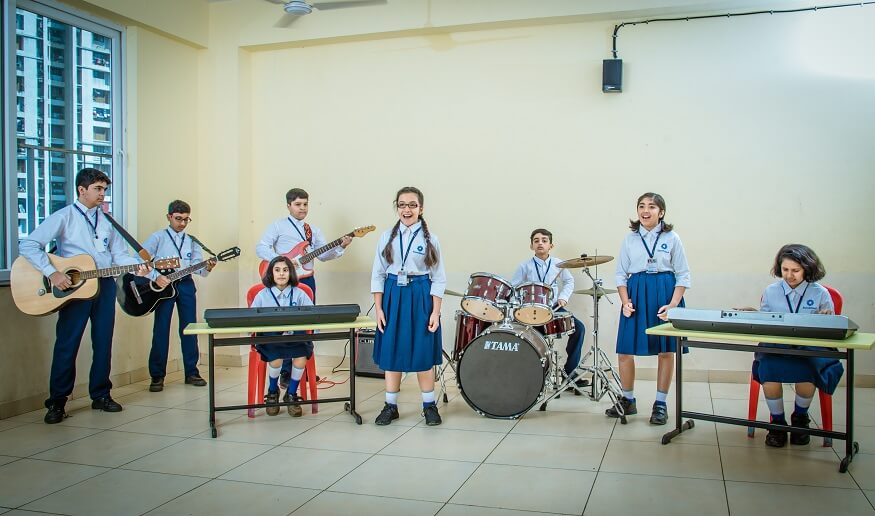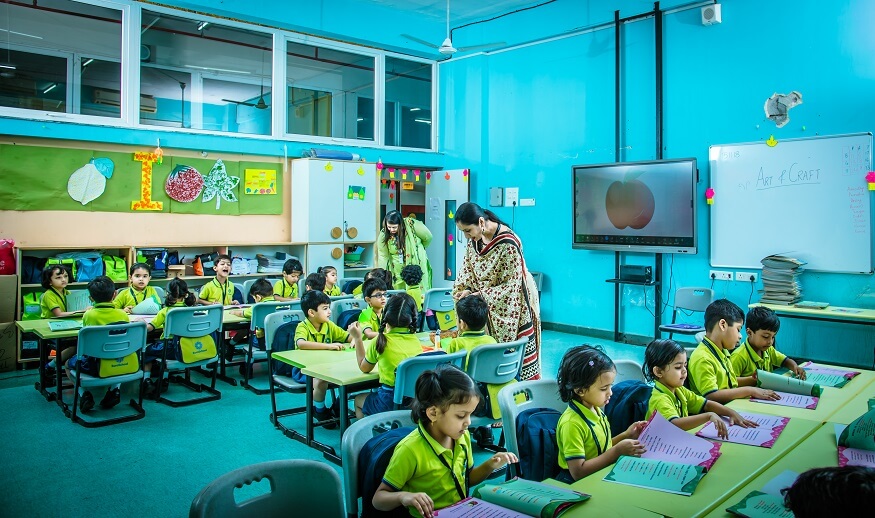As humans, we must have several needs, some basic and some a necessity. Let us understand a few basic needs kids must learn, one of which is musical instruments. Learning about music and some instruments increases the level of focus required to complete tasks. Learning a musical instrument needs the use of both hands, which stimulates the brain cells and makes the brain more active. There are various music genres and different instruments from which children can choose to learn.
Music therapy for children and adults involves singing, listening to music, swaying to music, playing different musical instruments, and these creative activities help kids become better learners. Music therapy works by developing a child’s self-awareness, confidence, skills readiness, coping skills, and social behavior, and in some cases, it is also used as a pain management technique. Choosing to learn a musical instrument is very important to improve a child’s cognitive skills and also to build their confidence. Hence, today we will discuss how music therapy helps kids in diverse ways.
Music therapy is an important aspect in everyone’s life, irrespective of the recipient being an adult or a child. Music therapy helps improve the overall ability of the brain and makes children stand out in a crowd in terms of creativity, giving them an outlet to express emotions. Music therapy also ensures enhancing reasoning skills. This gives children the required thought process, which is very essential to excel in subjects such as math and science.
The benefits of music therapy are many, but in some ways, it helps children become self-aware about their surroundings. It helps them to communicate without speaking. There are several types of music therapy, which also create a platform for children to improve their mental and emotional state of mind. It also enables children to be more socially active. It brings children out of the little bubble they create for themselves sometimes and acts as a helping hand to open up and explore the diversity of life.
Music therapy is overall much needed to have acceptance in our society today. Educational institutions have a call to increase awareness about different mental health problems and the numerous solutions that people tag as stereotypes or stigmas till this date. Music is very beneficial for children who, on a daily basis, go through stress and trauma of different kinds. Music therapy also helps a child’s wandering mind to be calm and stable. This stability and calmness ensure that children are mentally present in what they do on a daily basis. Music therapy is like the refresher breaks we all need at some point in the day and in our life.
Music is a mood changer and it lightens up a moment for any listener, be it a kid or an adult. What matters is how music helps us to be the better version of ourselves and helps each one of us to develop and connect our brain and heart in the most unique way possible. Hence, let us have a look at the benefits of music therapy and the advantages of engaging children in music.
First of all, we must understand how kids respond to any new hobby that they are asked to engage in. Parents nowadays receive different inputs from children because kids no longer want a one-size-fits-all approach. Kids now seek unique experiences. Hence, as parents, it is important that you understand what form of music kids like or would want to explore from the several options available.
Some kids elevate their achievements to the next level when they form a band of musicians and start pursuing their passion for music. They create their own music, compose songs, and write lyrics that deeply resonate with people. Using the power of social media is now a common practice, and every child has the potential to become a celebrity. Therefore, we can say that engaging children in arts and music can lead them to success if they decide to turn their passion into their profession.
Now that we know so much about the benefits of music therapy, let us look at some methods and types of music therapy for children.
Types of Music Therapy
- Compositional music therapy.
- Improvisation music therapy.
- Receptive music therapy.
- Re-creative music therapy.
Among the benefits of music therapy, according to some music therapy associations and a couple of research studies, music therapy can be used to help with the following:
- Improve overall physical rehabilitation.
- Facilitate movement.
- Increase motivation to engage in treatment.
- Offer emotional support for the person and their family.
- Provide an outlet to express feelings.
By now, we must know that music ignites all areas of a child’s development and skills growth, including intellectual development, benefiting their social and emotional aspects, helping in motor skills, adding value to language, and overall literacy. It helps the body and the mind perform together. Exposing children to music during early development helps them learn sounds and the meaning of words effortlessly.
Mentioned below are some musical instruments that can be learned to aid in music therapy:
- Guitar: When we consider music therapy instruments for kids, a guitar is the simplest. Learning to play the guitar means an instant goodbye to anxiety. It also strengthens a child’s physical appearance as a lot of arm work is required while playing the guitar. The strumming of the guitar to create a rhythm with a combination of chords is one type of music therapy in itself. This makes children happy and instills a sense of progression and achievement in their minds.
- Bongos: Also known as small hand drums, they are very therapeutic as they help release inner stress in children and help them gather their thoughts through beats and meditative rhythm. Small handheld drums are commonly used in these kinds of meditative sessions as it is mostly just one hand that is used by an individual to play the instrument. Hence, there is a mitigated fear of playing a wrong note or beat.
- Maracas: Maracas, also known as rumba shakers, are very common in Caribbean and South American music. Maracas are rattle instruments made of turtle shells filled with beads, seeds, and sometimes pebbles too. Maracas are also very important when we speak about the types of music therapy instruments. Playing the maracas can also reduce the need for medication when it comes to improving mental health and can give children an opportunity to engage in an additional recreational activity.
Music therapy has used music safely and ethically for all these years. It improves cognitive and communication skills, helps a person emotionally and physically, and builds social and spiritual bonds. Hence, here at EuroSchool, we encourage students to learn about music and musical instruments because it helps them to be mentally focused, relaxed, and stress-free.
Besides learning musical instruments, which is a great extracurricular activity for kids, it is also a great way for them to portray their creative side and turn their passion for music into a successful profession. We encourage children to participate in arts and music with importance. We want to ensure that a child’s development happens in an artistic and musical manner, showcasing their skills and talents in the most unique way to the world outside.











